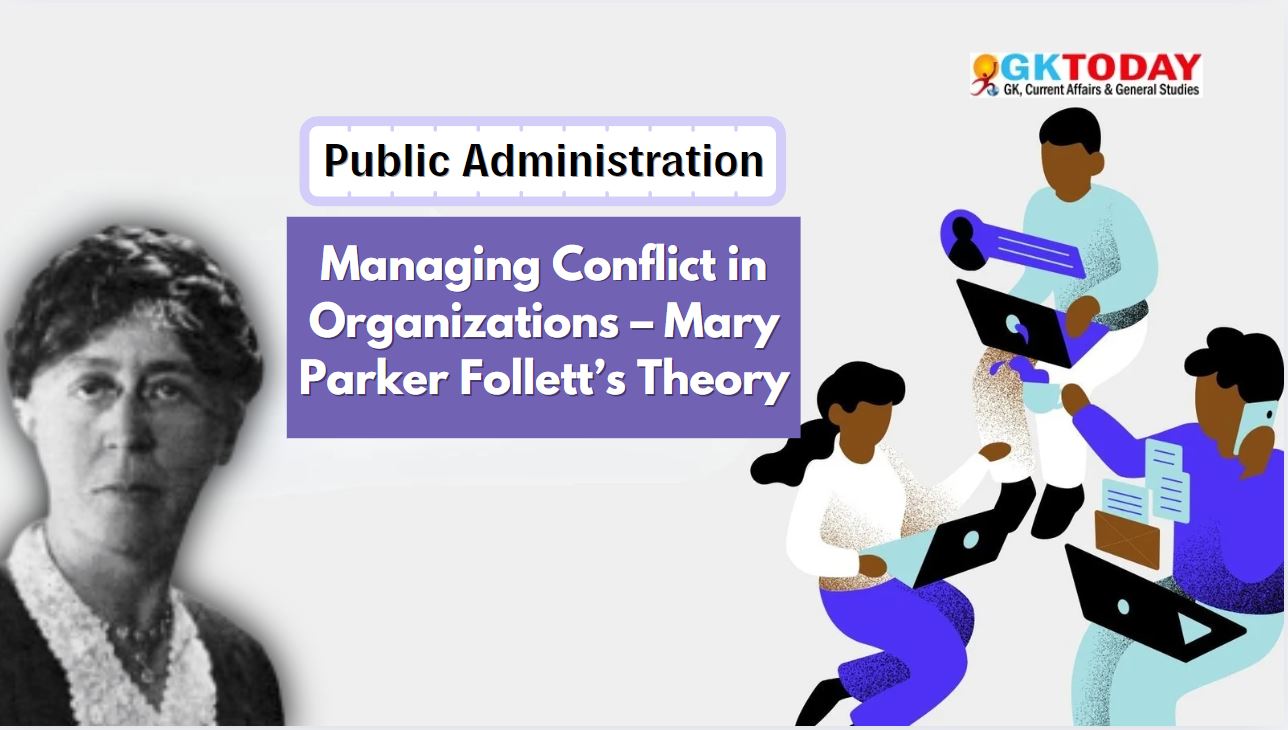Managing Conflict in Organisations – Mary Parker Follett’s Theory
Mary Parker Follett was a pioneering figure in management theory during the early 20th century. Often referred to as the “Mother of Modern Management,” she emphasised the importance of human relations within organisations. Her innovative ideas on managing conflict have left a lasting impact on contemporary management practices.
Introduction to Mary Parker Follett
Mary Parker Follett was born in 1868 in Massachusetts, USA. She was a social worker, management consultant, and author. Follett’s work focused on the human aspect of management. She believed that effective management should consider the needs and aspirations of individuals within an organisation. Her insights were groundbreaking at a time when traditional management theories primarily emphasised efficiency and control.
Key Concepts of Follett’s Theory
Follett’s theories revolve around several key concepts that highlight the nature of conflict and its resolution within organisations.
Conflict as a Natural Phenomenon
– Follett viewed conflict as an inevitable part of organisational life. – She believed that conflict could encourage growth and innovation when managed effectively. – For example, a disagreement between departments can lead to new ideas and improved processes.
Constructive Conflict Resolution
– Follett emphasised the need for open dialogue when conflicts arise. – She advocated for resolving conflicts through collaboration rather than avoidance. – An example is a team meeting where differing opinions are discussed openly, leading to a mutually beneficial solution.
Integration
– Follett introduced the concept of “integrative unity.” – This idea encourages conflicting parties to collaborate to find solutions that satisfy everyone involved. – Dialogue and negotiation are crucial in achieving mutual understanding.
Types of Conflict According to Follett
Follett identified various types of conflict that can occur within organisations.
Vertical Conflict
– Vertical conflict arises between different levels of hierarchy. – An example is a disagreement between managers and employees over work processes.
Horizontal Conflict
– Horizontal conflict occurs between individuals or groups at the same level. – For instance, departments may compete for limited resources, leading to tension.
Intra-group Conflict
– Intra-group conflict happens within a single team or group. – This often stems from differing opinions or conflicting goals among team members.
Conflict Resolution Techniques
Follett proposed several techniques for resolving conflicts effectively.
Collaboration
– Collaboration involves parties working together to find win-win solutions. – This approach encourages teamwork and strengthens relationships.
Mediation
– Follett suggested using a neutral third party to facilitate discussions. – Mediation can help parties reach agreements more amicably.
Consensus Building
– Consensus building focuses on creating solutions that all parties can agree upon. – This process encourages a sense of ownership and commitment among team members.
Role of Leadership in Conflict Management
Leaders play important role in managing conflicts within organisations.
Facilitation
– Leaders should act as facilitators in conflict situations. – They can guide discussions and help parties find common ground.
Emotional Intelligence
– Emotional intelligence is vital for understanding team dynamics. – Leaders with high emotional intelligence can better navigate conflicts.
Open Communication
– Promoting a culture of open communication is essential. – Trust and transparency can reduce the likelihood of conflicts.
Impact of Follett’s Theory on Modern Management
Follett’s theories have influenced contemporary management practices.
Conflict Resolution Practices
– Her ideas have shaped modern conflict resolution strategies in organisations. – Many companies now adopt collaborative approaches to conflict management.
Organisational Behaviour Theories
– Follett laid the groundwork for later theories on organisational behaviour. – Her emphasis on human relations has become a mainstay of modern management.
Participatory Management
– Follett’s focus on participatory management has encouraged employee engagement. – Today, organisations often involve employees in decision-making processes.
Critiques of Follett’s Theory
Despite her contributions, Follett’s theories have faced criticism.
Idealism
– Some critics argue that her ideas may be overly idealistic. – Implementing her concepts in hierarchical organisations can be challenging.
True Collaboration
– Achieving true collaboration in competitive environments can be difficult. – Critics point out that not all conflicts can be resolved through collaboration.
Legacy
Mary Parker Follett’s work continues to be relevant in discussions of organisational behaviour and conflict resolution.
Relevance in Modern Management
– Her emphasis on human relations remains influential in management practices . – Many contemporary theories echo her ideas on collaboration and integration.
Educational Influence
– Follett’s theories are often included in management education curricula. – Students of management learn about her contributions and their application in real-world scenarios.
Ongoing Discussions
– Follett’s work is frequently referenced in academic and professional discussions. – Her vital information about conflict management are considered foundational in the field. Thus, Mary Parker Follett’s theories on managing conflict in organisations provide valuable insights for modern management. Her emphasis on collaboration, integration, and human relations continues to shape how organisations approach conflict resolution . As workplaces evolve, Follett’s legacy remains a guiding principle for encouraging effective communication and positive organisational culture.


